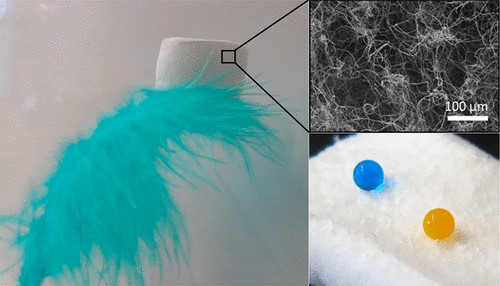News
New Paper: Ultraporous, Compressible, Wettable Polylactide/Polycaprolactone Sponges for Tissue Engineering
20.03.2018
Ultraporous, Compressible, Wettable Polylactide/Polycaprolactone Sponges for Tissue Engineering
M. Mader, V. Jérôme, R. Freitag, S. Agarwal, A. Greiner
Biomacromolecules, 2018, DOI: 10.1021/acs.biomac.8b00434

Ultraporous, degradable sponges made of either polylactide or of blends of polylactide/poly(ε-caprolactone) are prepared by freeze-drying of dispersions of short electrospun fibers and subsequent thermal annealing. The sponges feature ultrahigh porosity (99.6%), a hierarchical cellular structure, and high reversible compressibility with fast recovery from deformation in the dry as well as in the wet state. The sponge properties depend on the fiber dispersion concentration and the annealing temperature. Sponge characteristics like fiber density (2.5–20 mg/cm3), size, shape, crystallinity, mechanical strength, wetability, and structural integrity are user adjustable. Cell culture experiments were successfully performed with Jurkat cells with Confocal Laser Scanning Microscopy and MTT staining showing rapid cell proliferation. Live/Dead staining demonstrated high viability of the seeded cells. The sponge characteristics and modifications investigated and presented here reveal that these sponges are highly promising for tissue engineering applications.

